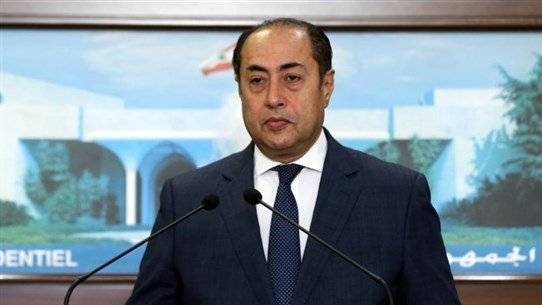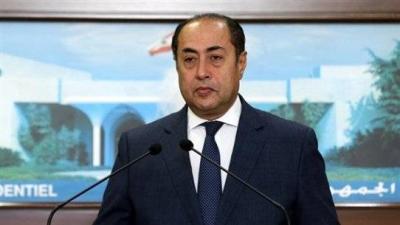The Assistant Secretary-General of the Arab League, Ambassador Hussam Zaki, was sent on a mission to Lebanon by Secretary-General Ahmed Aboul Gheit to gather the opinions of political leaders regarding the upcoming presidential election and to explore ways to address the political deadlock the country is experiencing. This initiative reflects the League’s commitment to accompany Lebanon through significant events and its awareness of the severe repercussions that would result from a presidential vacuum if a president is not elected before the constitutional deadline on the 31st of this month.
Zaki began his visit by holding several meetings with leaders of parliamentary blocs from across the political spectrum, including President Nabih Berri, the head of the "Free Patriotic Movement" Gebran Bassil, the leader of the "Lebanese Forces" Party Samir Geagea, the head of the Progressive Socialist Party Walid Jumblatt, and the leader of the Kataeb Party Sami Gemayel, as well as a number of independent and reformist MPs. He also met with President Michel Aoun and Prime Minister-designate Najib Mikati, and held discussions with Foreign Minister Abdullah Bou Habib.
During these meetings, Zaki listened to various perspectives on the presidential election and the consequences of entering into a presidential vacancy, especially given the limited time left to complete this process on schedule. After the visit, Zaki stated that he perceived significant differences in viewpoints among political leaders, as well as a lack of communication channels between them, which could plunge the country into a very difficult situation, particularly in light of the international focus on the Ukraine crisis.
The Assistant Secretary-General emphasized that "Lebanon cannot afford a state of 'normalcy with crisis' or acceptance of a presidential vacuum in view of the severe economic crisis it is undergoing, which is reflected in the living conditions of citizens and the social situation in the country, causing concern and distress for all Lebanon's supporters and friends."
Zaki urged all political leaders during his meetings to prioritize national interest, sit together, and open channels of consultation to agree on this important constitutional requirement, noting that there is no luxury of time available and reliance solely on external solutions will not help resolve the crisis in light of heightened international tensions and the worsening global crises.
Zaki reiterated the Arab League's readiness to undertake any role requested to assist Lebanon in overcoming the political crisis, especially since all parties he met welcomed the Arab League's support for Lebanon during this critical phase.




